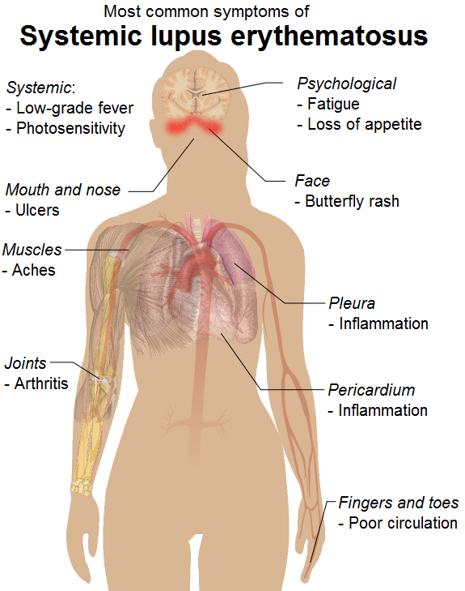 
|
 

|
| HOME WHAT IS LUPUS? LUPUS - RECRUITMENT PUBLIC INFORMATION DATA FOR SCIENTISTS LITERATURE REVIEW | |
|
Lupus is formally known as Systemic Lupus Erythematosus (SLE). It is one of many diseases referred to as an autoimmune disease. This means that the body’s immune system mistakenly attacks healthy tissue. When the immune system is functioning normally, it makes proteins called antibodies that protect us against things such as viruses and bacteria. Lupus is characterized by the presence of antibodies against a person's own proteins; these are most commonly anti-nuclear antibodies, which are found in nearly all people with Lupus. These antibodies lead to inflammation. Although the underlying cause of autoimmune diseases is unknown, most believe that lupus results from both genetic and environmental factors. Gender and ethnic disparities Genetic basis |
|
| Please Contact us if you have any questions |